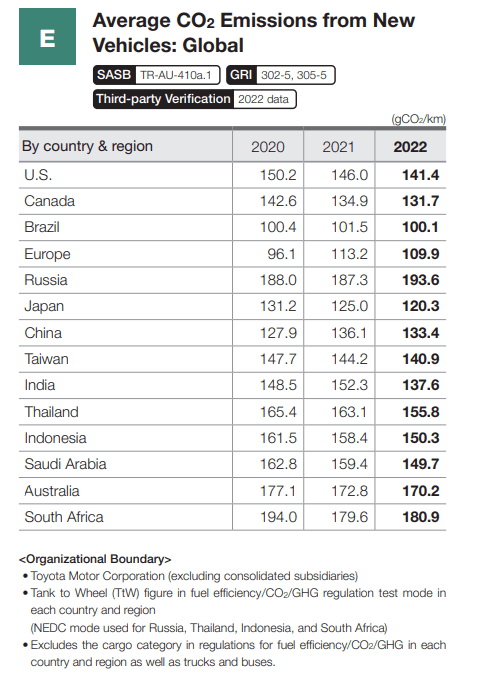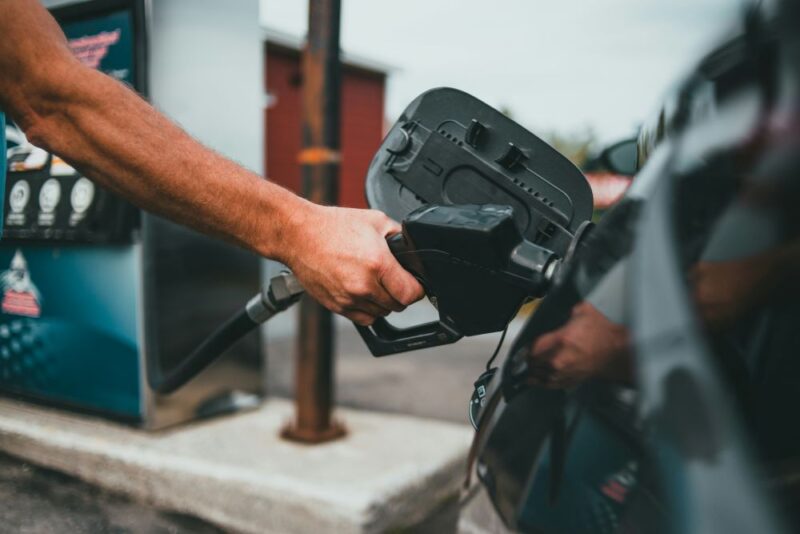New figures released by Greenpeace Australia Pacific suggest that Australians would have now saved over $10 billion in petrol costs if fuel efficiency standards had been implemented in 2016. This coincides with figures from Japanese car giant Toyota that shows Australia has become a dumping ground for its dirtiest cars.
According to a sustainability report by Toyota released in October this year titled ‘Sustainability Data Book’, Australia clocked in at 170.2 grams of CO2 per kilometre on average for Toyota’s new cars. This is one of the worst in all the regions Toyota sell cars to – second only to South Africa.
“These new figures provide proof that Toyota is blowing smoke in the eyes of Australian motorists. They’re using Australia as a dumping ground for their most polluting vehicles, while lobbying to delay fuel efficiency standards,” said Greenpeace Australia Pacific campaigner Lindsay Soutar.

“Even oil kingdom Saudi Arabia is getting more fuel-efficient cars from Toyota than Australia”
Mandatory efficiency standards to stop companies like Toyota doing this were seriously considered by the Turnbull government in 2016, but ultimately were never put forward. This delay has cost Australians billions of dollars and millions of tonnes of emissions.
Figures from Greenpeace – calculated from a report from the Australia institute released in August – found that $10.1 billion dollars would have been saved by motorists from January 2017 to October 2023.
On top of that, Australia Institute’s Fuelling Efficiency Report notes that 9 million tonnes of CO2 would have been prevented and 4000 megalitres of fuel would have not been imported into Australia.
These figures come just days after Federal Transport Minister Catherine King delayed the draft of new legislation to create a mandatory standard.
Despite being recommended by government inquiries and being committed to by multiple governments, Australia still has no mandatory fuel efficiency standards for light vehicles.
This has meant that around the world, the country has one of the worst average carbon dioxide emissions from new vehicles.
A lack of fuel efficiency standards effects those who have petrol cars – who end up having to spend more on petrol – but also electric vehicle owners and those considering them.
In places with mandatory fuel efficiency standards, companies are fined if they go over that average. That gives incentives for car companies to produce more EVs, and send them to areas where they need to hit the standard.
Australia – without those standards – misses out, meaning longer delays on electric vehicles and other lower emissions vehicles.
According to experts, a lack of these standards has made Australia a car dumping ground.
“Every month that ticks over where nothing’s progressing on an vehicle-emission standard is another month of petrol and diesel vehicle sales, another 6000 diesel vehicles on the road that will stay on the road for another decade,” said Australian Electric Vehicle Association national president Chris Jones.
“Every time we kick that can down the road, we’re making our task harder.”
Research has shown this would not be unpopular. A 2021 nation-wide survey called Climate of the Nation showed 65% of Australians support the introduction of national fuel efficiency standards in line with those in Europe.
Transport Minister King has not yet provided a new date for the draft legislation, instead saying the government needs “time to get the design right”.

